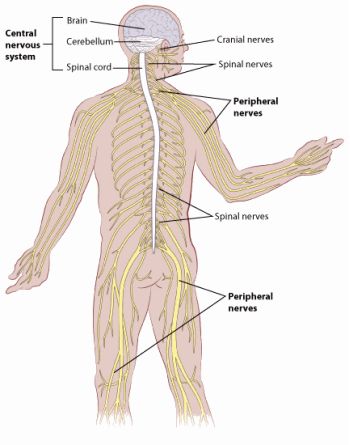Diabetic neuropathy is when the nerves in the body cannot carry out its function
When your body is deprived of insulin or the body doesn't produce enough insulin, the blood glucose level remains too high for the blood to circulate properly. This in turn causes the cells in the body to die. This condition is usually referred to as peripheral neuropathy and can be caused by diabetes mellitus and related diseases. A diabetic patient may have neuropathy on their hands or feet, fingers or toes.
When the brain is deprived of the glucose that is needed for the cells to function properly, then it will have trouble sending signals to the peripheral nerve cells. One of the symptoms is a sharp, burning, aching, or numbness in the fingers, toes or feet.
Another symptom of diabetic neuropathy is a stabbing, shooting, or burning pain (hypoglycemic neuropathy). The pain can be moderate at first, but over time, it can become worse and spread out over your arms or legs. People with diabetes may also have difficulty in walking and some of the symptoms include:
As we age, peripheral neuropathy becomes more common.
Some of the complications that are linked to diabetes-related neuropathy include:
- As well as diabetic neuropathy, there are other conditions that are associated with neuropathy.
- Arthritis, diabetes, kidney disease, kidney stones, urinary tract infections, and gout are just some of the many diseases that can lead to neuropathy.
- A diabetic can also develop diabetic neuropathy. This condition is normally referred to as diabetic neuropathy.
Diabetes is not the only disease that leads to neuropathy. It can also be caused by a condition known as neuropathy caused by a tumor. In this case, the damaged nerve travels into the blood stream instead of the spinal cord. For example, the damaged nerve that travels from the knee joint to the leg may travel through the leg and into the spinal cord. This process is known as effusion neuropathy.
There are also other complications of diabetes and neuropathy, such as:

These are just a few of the diabetic neuropathy complications and the different complications that are associated with the disorder.
Some of these complications include:
- In order to determine if you may have diabetic neuropathy, you should undergo a series of tests. Your doctor can perform an ultrasound test to see if there is damage to the nerve in the legs or feet, or a nerve test to look for damage in the spine. They may also perform a nerve study by examining the nerves from the foot or ankle or nerve roots.
- If there are no nerve cells growing in the affected area, then the area does not contain enough cells to support nerve growth. If the damaged area contains cells, but they are dead or damaged, then you may have neuropathy caused by an infection.
- Neuropathy can occur in both the peripheral and central nervous systems. The peripheral system is the part of the nervous system that controls the motor functions of your body. Whereas the central nervous system controls the nervous system, which controls vision and speech.
Typically, diabetic neuropathy occurs when the peripheral nervous system is affected
This affects the kidneys and eyes, kidney problems cause a decrease in the level of potassium and calcium in the body, and the eyes cause a decrease in the level of phosphorus.
You may have many symptoms of diabetic neuropathy, for example:
- This is called hypoglycemia, which means a decrease in blood sugar levels. Hypoglycemia can also affect blood pressure. Hypoglycemia can be life-threatening, especially when the lower limbs are in motion, because it causes a decrease in heart rate and makes the heart work harder, which can lead to strokes. You can learn more about the dangers of this disease at Handal Dok.
- Apart from these symptoms, you may also have nerve damage. This is called neuropathy, and it damages the nerves in the brain.
- Neuropathy can affect the heart, liver, kidneys, bones, muscles, bones, lungs, and other organs. This can cause amputation and permanent disability.